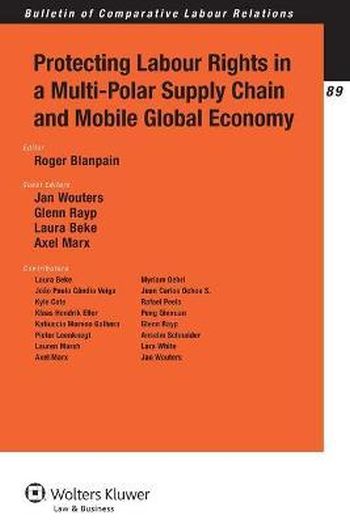Protecting Labour Rights in a Multi-Polar Supply Chain and Mobile Global Economy
ISBN13: 9789041156624
Published: November 2014
Publisher: Kluwer Law International
Country of Publication: The Netherlands
Format: Paperback
Despatched in 10 to 12 days.
In this important volume, nine studies identify the complexities of protecting labour rights in a mobile global economy by assessing the role of ILO standards, as well as public, private, and public-private initiatives, in countering the potentially negative impact of international trade and investment flows on labour rights. The editor’s powerfully summative introduction and conclusion pinpoint the crucial issues confronting labour law in this context, highlighting the need for policy coordination and coherence. Among the topics and issues raised in the book are the following:
- empirical studies of migrant workers employed in global supply chains;
- international recruitment intermediaries;
- governance through hierarchy versus governance through networks;
- trade sustainable impact assessments (SIAs);
- the so-called governance triangle – the state, companies, and non-governmental organizations (NGOs);
- corporate social responsibility (CSR) initiatives; and
- the OECD’s national contact points (NCPs).
Various authors focus on such features as the difficulties of monitoring labour conditions in a supply-chain system, the multiple forms of disadvantage often faced by supply-chain workers, enforcement and jurisdictional roadblocks, and pitfalls caused by prioritizing quantitative modelling at the expense of qualitative analysis. Authors and editors both offer recommendations on ways to not only hold multinationals responsible for the negative externalities of their actions but also provide building blocks for effective global supply-chain regulation.
